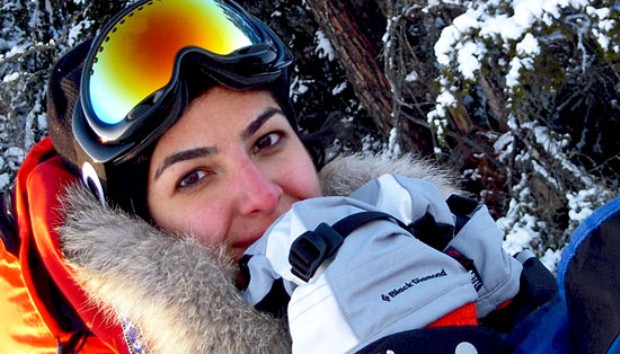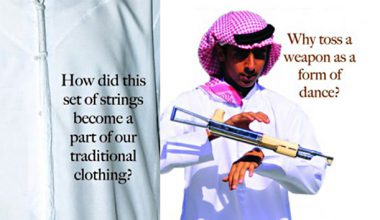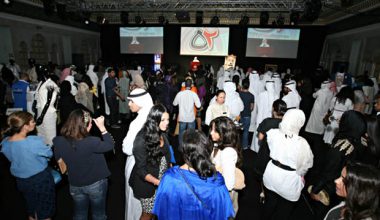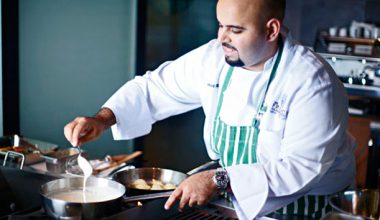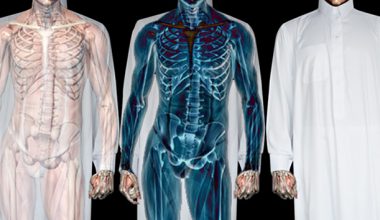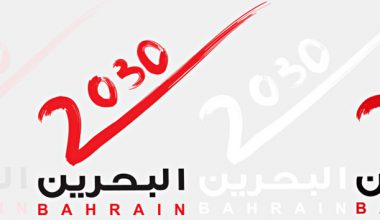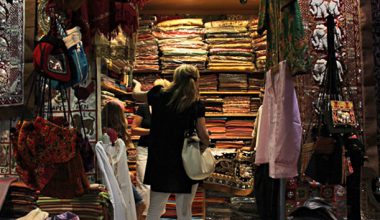We’ve all aspired (at some point in our life) to achieve the impossible; be it to climb the highest peak, to fly across the skies or even to make it to the moon and back. Regrettably most of us don’t follow through; often blaming reality and immature childish ambitions for our lack of grit.
When Neil Armstrong wanted to walk on the moon, he made sure he did. When Sir Edmund Hillary and Tenzing Norgay aimed to be the first men atop Mount Everest, they made the effort to see it through. When the Orville brothers believed they could fly, they believed enough to make it happen.
So when Elham Al Qasimi decided she wanted to be the first Arab woman to trek (solo) to the North Pole, she pulled out all stops to get herself there. Khaleejesque managed to get hold of this extraordinary Emirati woman, before she set off on her epic journey:

Khaleejesque Team: So what was it that made you wake up one day and decide 'I want to trek to the North Pole!?'
Elham Al Qasimi: I believe the best challenge is when you look inward and challenge yourself. I had made a lot of progress in my career, and now wanted to focus a similar type of drive and energy in pushing my physical limits by facing a challenge totally outside my comfort zone.
KT: Being such a seemingly far-fetched idea, I'm sure you must have been on the receiving end of some opposition?
EQ: Yes a few people thought I was crazy, but once they saw how determined and focused I was they realised that I really wanted to do this. My family then started to consider the idea. We spoke for a long time so as to make sure they understood the whole experience, and then they were fine and have supported me ever since.
KT: What exactly does this mission entail, and what is it that you're trying to achieve?
EQ: I view it as just the right challenge! The purpose of this journey is to push myself out of my comfort zone. It is only by doing so that you know the real limits of what you are capable of as a human being.
Truth is, if I had chosen an easier path I would only be cheating myself of the journey and lessons to be learned along the way. I could even take a helicopter to the North Pole, but I wouldn’t be facing the same grueling physical and mental preparatory regime to face it.
In the end the destination is not the real target, it’s the journey that takes me there. For this reason I felt that an unassisted, unsupported expedition was perfectly suitable.
KT: Health and fitness play a vital role in your trek. What has been your training regime?
EQ: My trainers have prepared 4 stages of training in the 6 months prior to my departure:
1. The Integration or foundation phase
2. Power/speed training phase
3. Endurance training phase (to ensure I withstand exercise 8 hours a day)
4. Functional endurance and acclimatization phase (to ensure I withstand the exact type of exercise I will be doing there which is cross country skiing and that I can do that in an environment where its so cold its hard to breathe properly while you exercise)
Phase three of my preparation I go to the park for long journeys of pulling tyres. I am also doing a lot of strength training as we realized the more I can get in the better. I just came back from a 5-day polar training camp in the USA in Minnesota where they simulated the type of environment and challenge I would face every day. This preparation was really indispensable and my trainers and I have further adjusted my training program as a result.
My training is being supervised by 4 trainers with complimentary expertise and personal experience: a 20x triathlete, a mountaineer, a strength coach, and a extreme skier who ranked in the top ten European extreme skiers. In addition to personal training, and knowledge of how to survive in tough environments, between the four they have also competed, broken records, faced failures, and generally understand what it does to the psyche of a human to be so driven by a physical goal.
In March I did a 6 day trek in the Alps supervised by three of my guides. All my holidays and planning revolves around making time for my training which will make the difference between a successful and fun trip and a successful and torturous trip!
KT: Why did you choose this particular charity? Anything close to heart?
EQ: Before I started this expedition my job was to find the most effective and innovative delivery models that foster social development and invest in them; I have evaluated many different approaches to helping the economically disadvantaged. I believe sustainable livelihoods rather than handouts are key to actually creating lasting change in lives of disadvantaged people. I also wanted to support causes that the country and region could identify with and support, demonstrating both our regional and international commitment to development and progress.
We have enjoyed prosperity in the UAE without which the luxury of even dreaming of an expedition like this wouldn’t be possible for me. It’s important to remember that.
I am hoping to raise awareness and money for two charities, one regional and one international that foster social mobility through their delivery models and therefore create sustainable solutions for disadvantaged people. I feel strongly it is important we move away from a ‘hand-out’ approach to eradicating the root cause of poverty and disadvantage. In the past 60 years we have not seen one nation move or change from being a ‘developing country’ to a ‘developed country’. So what have we been doing with all our foreign aid for all these decades? I’d like to see a change in this track record during my lifetime.
PEAS is an NGO which builds sustainable secondary schools in Uganda and in Kenya, which we believe is key to fostering social mobility. PEAS creates no dependency on donor countries for the ongoing running and maintenance of its schools through its innovative and practical financing model. Seats in the school are funded through a small fee that is sustainable for a low-income household and also subsidizes free seats at the school for the poorest of young people. They also run income generation projects alongside the school, which contributes towards running costs.
The second charity is PCRF (Palestine Children's Relief Fund). The Palestine Children’s Relief Fund is a registered non-political, non-profit organization that was established in 1991 by concerned people to address the medical and humanitarian crisis facing Palestinian youths in the Middle East. It has since expanded to help suffering children from other Middle Eastern nations like Iraq, based only on their medical needs. The P.C.R.F. helps to locate free medical care for children from the Middle East who are unable to get the necessary and specialized treatment in their homeland.
The main objective of the PCRF is to identify and treat every child in the Middle East in need of specialized surgery not available to them locally. We locate, sponsor and run volunteer medical missions to the Palestine and Lebanon's camps and have provided thousands of injured and sick children life-saving surgery, as well as training for local medical personnel.
We also locate abroad free medical care for children who cannot be adequately treated in the Middle East. The PCRF is the main organization regularly sending injured and sick Arab children to North America, the Middle East and Europe for free care that is not available to them there. Since 1991 over 1,000 children have been or currently are being treated outside of the Middle East through the PCRF. Six injured children from Gaza are currently being treated for free in the USA, and another four are in Dubai, the UAE for free care.
The P.C.R.F. also helps to improve the quality of medical care in the Middle East by sending medical equipment and supplies to the West Bank and Gaza Strip as well as training local surgeons.

KT: At just 27, you've got a whole life ahead of you. Any other feats on the agenda?
EQ: Yes a few in the pipeline but I will only concentrate on this once I am back from the North Pole… watch this space!
KT: Is there anything else you'd like to add for our readers?
EQ: “You can do anything you put your mind too, just be a good person and work hard”
To track Elham Al Qasimi’s extraordinary journey check out her blog or follow her on Twitter.
Images: Elham Al Qasimi
– Shaahima Fahim

